Is there such a thing as ‘free’ stock trading? If there were, would you trust it?
Too many new traders are worried about the costs of trading and trying to get something for nothing. There’s no such thing!
Trading isn’t something you can get into if you’re overly worried about spending or losing money. You’re going to lose money. The key is to have a solid risk management strategy.
What you should focus instead on is getting the right education and the right tools so you can better arm yourself for the trading battlefield. That’s what I want to give to my students — the lessons, tools, and ‘weapons’ to help keep them safe.
Recently, we saw a lot of brokers offer commission-free trading. It’s one reason we’ve seen so many new traders enter the market lately.
But what does free stock trading really mean? Let’s break it down. In this post, I’ll go over the top free stock trading platforms, free stock trading apps, and what you should know about them.
Let’s get into it…
Table of Contents
- 1 Can You Trade Stocks for Free?
- 2 How Much Does It Cost to Trade Stocks?
- 3 6 Top Free Stock Trading Platforms
- 4 How to Choose the Best Broker for You
- 5 What’s the Best Free Stock Trading App?
- 6 Frequently Asked Questions About Free Stocks Trading
- 7 Conclusion: Is It Really Possible to Trade Stocks for Free?
Can You Trade Stocks for Free?
The old adage is true — there’s no such thing as free. Sure, there are brokers out there offering free commissions, but there’s far more to trading than commissions.
You need trading capital. And what about data? Will you trade using free data that has lags and delays? That’s probably not gonna work…
You’re not going to get executed at the right time — if you get executed at all. The volatile stocks I trade move FAST. If you’re looking at delayed data, you’ve already missed the move.
If you want to know which stocks I’m watching each week, subscribe to my no-cost weekly stock watchlist here. To learn about trading volatile stocks in this crazy market, get my no-cost “Volatility Survival Guide.”
To day trade stocks, you need real-time data, and brokers don’t give that away for free…
There’s a little thing I like to call market tuition — everyone pays it.
So you can either pay the market to teach you the lessons by making mistake after mistake and losing your money … Or you pay someone to teach you what they know and prevent some unnecessary mistakes.
I think having a mentor is cheaper. It also saves your mental capital from the stress and frustration of losing money due to dumb mistakes.
We’ve all been there, myself included. When I started, I had no teacher or mentor.
I had to make every mistake in the book to learn the lessons and rules I trade with now. Things don’t have to be as hard for you. I became a teacher to save traders from the frustrations of learning the market the hard way.
You don’t have to go it alone, and it can be less frustrating if you learn from the right people. The important thing is…
Don’t Focus on the Money
Your trading education and the right mindset are vital. Focus on developing good habits and rules to keep you safe on the trading battlefield.
Trading isn’t a get-rich-quick scheme. Learning the nuances of the market takes time. So if you don’t have money to trade right now, don’t worry. You can study and paper trade on a platform like StocksToTrade while you save capital for a live account.
My student Jack Kellogg traded a few stocks in the beginning and lost money. He realized quickly he didn’t know enough…
And he didn’t want to keep making mistakes and losing money. Jack wanted to take the time to learn to do it right. So he joined my Trading Challenge to study while saving up capital for trading.
Now he’s made over 1 million* in only his third year of trading. That’s the power of education.
(*Please note that these kinds of trading results are not typical. Most traders lose money. It takes years of dedication, hard work, and discipline to learn how to trade. Individual results will vary. Trading is inherently risky. Before making any trades, remember to do your due diligence and never risk more than you can afford to lose.)
If you’re new to penny stocks, start with this free guide.
Then sign up for my 30-Day Bootcamp. It’s a month’s worth of lessons and homework. It also comes with the book “The Complete Penny Stock Course” written by my student Jamil and my “Pennystocking Framework” DVD. It’s a great value at under $100!
You can do the lessons at your own pace. And with lifetime access, you can repeat them as much as you need.
Psst! I’m working on new chapters for the course — get started today!
How Much Does It Cost to Trade Stocks?

2025 Millionaire Media, LLCTraders and the strategies they trade are all very different. So the costs of trading will depend on which tools you want at your disposal…
If you short sell stocks, your costs will be higher than a trader who only goes long. There are more fees associated with shorting, like borrow costs and interest for holding shares overnight.
Most brokers don’t charge commission anymore, but there are other fees to be aware of like market data, Level 2, and premium service fees. Options contracts also aren’t covered under the commission-free umbrella at most brokerages.
The Securities and Exchange Commission (SEC) and the Financial Industry Regulatory Authority (FINRA) also have regulatory fees that are charged on either your dollar profit or per share traded. These are unavoidable.
If you want breaking news you’ll have subscription fees to news publications … The list goes on depending on the tools you want to use.
And having the right tools can make a huge difference in your trading. I’ve been using the StocksToTrade Breaking News Chat since it came out, and it’s been a game-changer for my trading. I owe a huge portion of my 2020 profits (over $1 million) to the Breaking News Chat.*
It’s the best at getting breaking news out fast! And they only post news that’s relevant to penny stocks. No more sifting through a bunch of worthless news to get to the good stuff.
Get a 14-day trial of StocksToTrade for $7 here. Or get it with the Breaking News Chat add-on feature for only $17.
(Quick disclaimer: I proudly helped design and develop StocksToTrade and am an investor in it.)
6 Top Free Stock Trading Platforms

2025 Millionaire Media, LLCBelow are six free stock trading platforms. Keep in mind that all these brokers might require you to open an account (even if it’s unfunded) before you can use their trading platforms and features. Yep, even if it’s just for paper trading.
They may also have delayed data unless you pay for a monthly data subscription.
TD Ameritrade
TD Ameritrade offers the trading platform thinkorswim. It’s a favorite among active day traders and free for TD Ameritrade customers. It also offers paper trading accounts so you can practice your strategies. But the data will be delayed unless you pay for a subscription.
There’s no minimum deposit required to open an account. This is a generally well-respected broker with a huge customer base. It offers commission-free trades on stocks and ETFs. Options contracts will cost you extra.
More Breaking News
- Lucid’s Bold Moves: A Risky Strategy?
- BigBear.ai Faces Investigation: Stock Price Plummets
- Why Nokia Stock Is Climbing Fast?
Ally Invest
Ally Invest offers commission-free trading for stocks and ETFs. It has a web-based trading platform available for customers. There’s no minimum deposit requirement for opening a new account.
It also offers customers a free stock trading app for trading on the go.
E-Trade
E-Trade is one of the brokers I use. Not because it’s the best — it just sucks the least for my needs. It also offers commission-free trading for stocks and ETFs. There’s no minimum deposit requirement, but it does require you to fund your account within 30 days.
It offers two platforms free for customers, either web-based or a download for your desktop. It has free paper trading on the platforms and also offers two mobile trading apps.
Webull
Webull is a commission-free brokerage that also has no minimum account requirement to open an account. It has a free web-based trading platform as well as a free stock trading app.
Webull also offers paper trading on its free stock trading simulator through its web-based platform.
Trade Station
TradeStation has an account option with no minimum deposit requirement. You can trade commission-free on its web-based platform.
If you fund your account with a minimum of $2,000 you get the desktop trading platform. It also offers a free stock trading app.
Interactive Brokers
Interactive Brokers allows you to open a cash account with no minimum deposit requirement. A margin account will require a $2,000 minimum. You can trade through your cash account on its Client Portal web-based platform, commission-free.
Cash accounts usually take a few days for your money to settle. So you won’t be able to trade every day unless you only use a small amount of your account size.
Traders usually report they’re happy with IB’s executions and customer service.
It’s also a favorite among short-sellers. (But you won’t be able to short sell with a cash account.) It usually has good borrows for a reasonable price, unless it’s a hard-to-borrow stock.
How to Choose the Best Broker for You
Choose the broker that sucks the least for your needs. None of them are perfect. An important thing to consider when choosing your broker … What’s your strategy?
If you short sell, you need a broker with good borrows and lower fees.
If you trade OTCs, you need good executions. All traders want good executions, but it’s especially hard to get if you trade OTC stocks. Some brokers don’t even allow you to trade OTC stocks or short-sell. So do your research!
Due diligence and research are so important. You need the right broker and platform for your strategy and that suits your trading style.
Don’t forget to consider the broker’s reputation when it comes to customer service. Traders overlook this far too often. Your broker holds your cash and your positions. You want to be able to get a hold of them easily and talk to someone if you need technical support.
Another important factor to consider is reliability. The volatility in the market in 2020 caused a ton of broker issues — especially in the mornings when trading volume is high.
That’s when platforms can freeze or crash, causing traders to get frustrated, miss opportunities, and lose money.
2020 was an exception, not the rule. Almost all brokers had an issue at some point in the market madness, so we can’t hold it against them. But during regular market conditions, your broker and platform shouldn’t have any issues keeping up.
What’s the Best Free Stock Trading App?
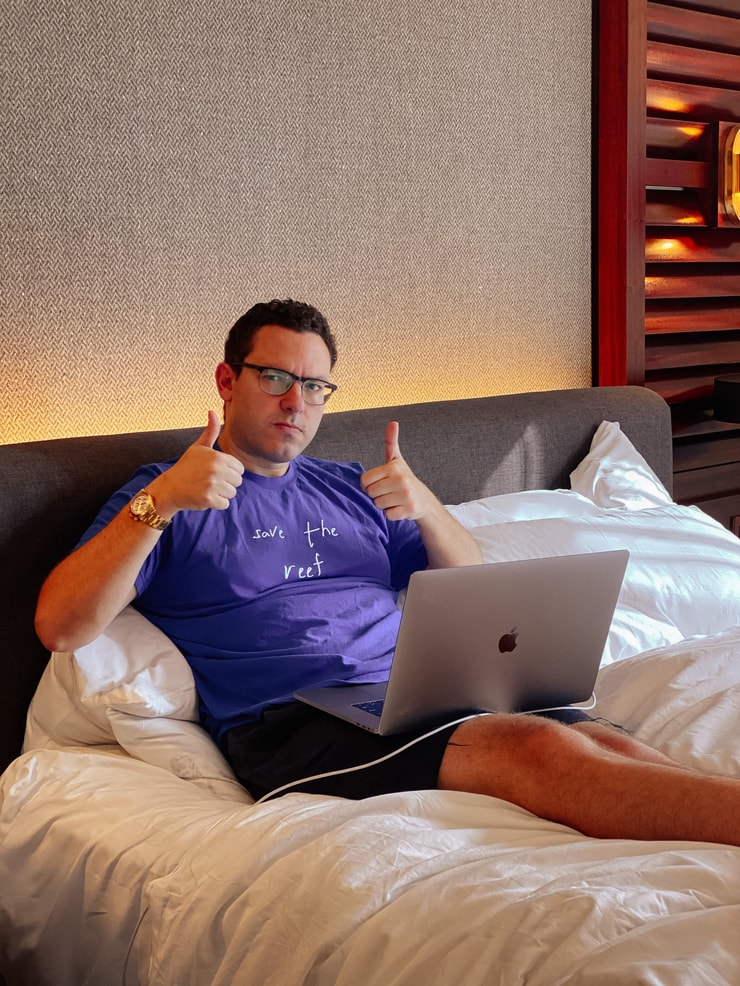
2025 Millionaire Media, LLCRobinhood made a big splash this year with its free stock trading app and no commissions. I think I’ve already made it clear what I think about Robinhood’s free stock trading — I don’t think it’s free.
But in case you haven’t read my Robinhood reviews, read this post and this one.
These trading apps might advertise themselves as free, but to me, there’s no such thing. It’s likely costing you in other ways in executions or lack of services.
Almost all other brokers offer a free stock trading app for their customers. So, if trading from an app is important to you, there are a ton of options out there.
That’s not how I trade. When I’m in a trade, I’m way too focused on the chart, price action, and Level 2 to trade from a mobile trading app. But hey, do what works for you.
Frequently Asked Questions About Free Stocks Trading

2025 Millionaire Media, LLCIs Robinhood Really Free Trading?
Robinhood offers commission-free trading on a free app — but I still wouldn’t call it free. All brokers make money somehow, so be sure to check for every possible fee or charge. And some commission-free brokers could cost you in missed trading opportunities if they don’t support your strategy, like trading OTCs or short selling..
Who Has the Lowest Fees for Online Trading?
Most brokers offer commission-free trading. Instead of trying to find the cheapest broker you can, look for a broker that offers good execution speed and top-notch customer service. If you plan to use its trading platform, make sure it has the best tools for your trading style.
What’s the Best Free Stock Trading Broker for Beginners?
The best free stock trading broker is the one that suits you best. Trading is a very personal thing. What works for me might not work for the next trader. Do your research and use one that fits your trading style and strategy. If you don’t like it, try something else.
Conclusion: Is It Really Possible to Trade Stocks for Free?
The cost of trading has gone down significantly over the last few years. I still don’t think you can get the best executions, customer service, and the option to trade OTCs or short sell for free.
Trading is all about finding opportunities and capitalizing on them. If your broker’s holding you back from taking advantage of some of the best trades, then I don’t consider it free. In fact, it can cost you more than money. It’s costing you the opportunity to execute a good trade, practice, improve, and possibly make a profit.
I prefer to trade OTC stocks, so I need a broker that allows me to trade and short them (even though I don’t short sell much these days) and give me good executions. You have to find what works for you.
Trading Challenge
If you want to learn the strategies and patterns I’ve been trading for 20+ years and teaching for 10+ years, apply for my Trading Challenge. It won’t be easy, but it’s where all my millionaire students got their start, most with small accounts.*
Challenge students get access to all my DVDs, video lessons, webinars, and my Challenge chat room. Apply today if you’re truly dedicated to your education and ready to take your trading to the next level!
Which free stock trading platform is your favorite and why? Let me know in the comments!

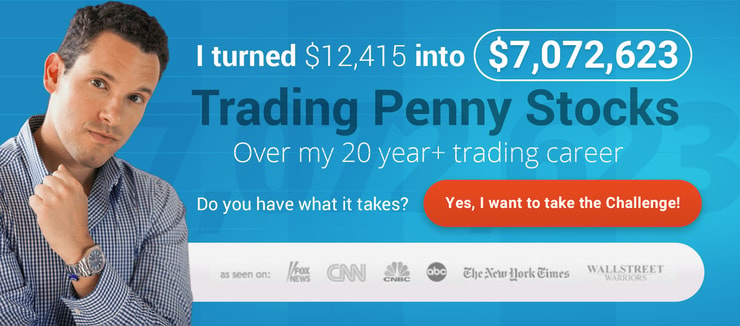

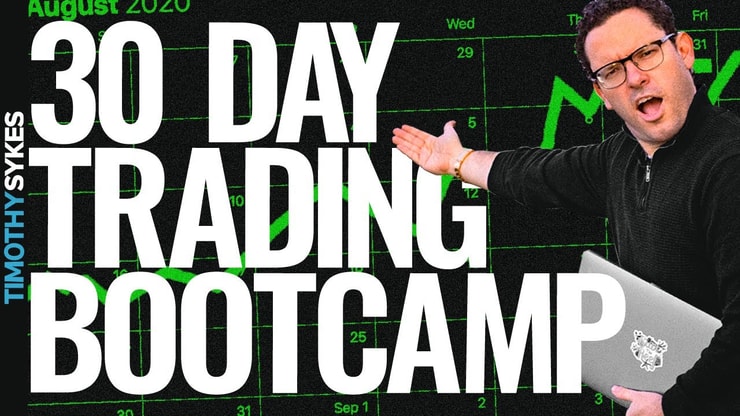
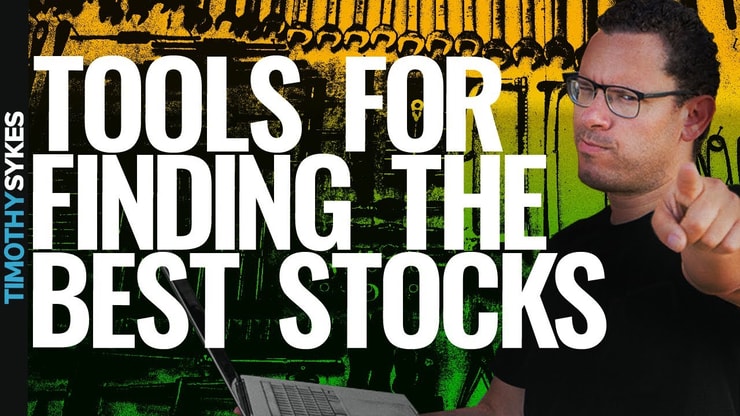
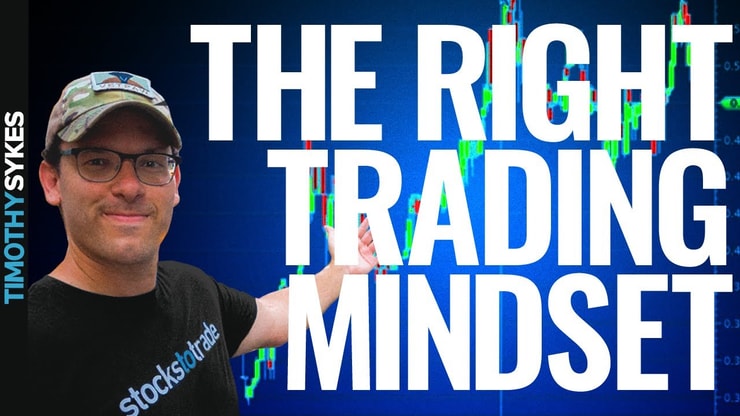









Leave a reply